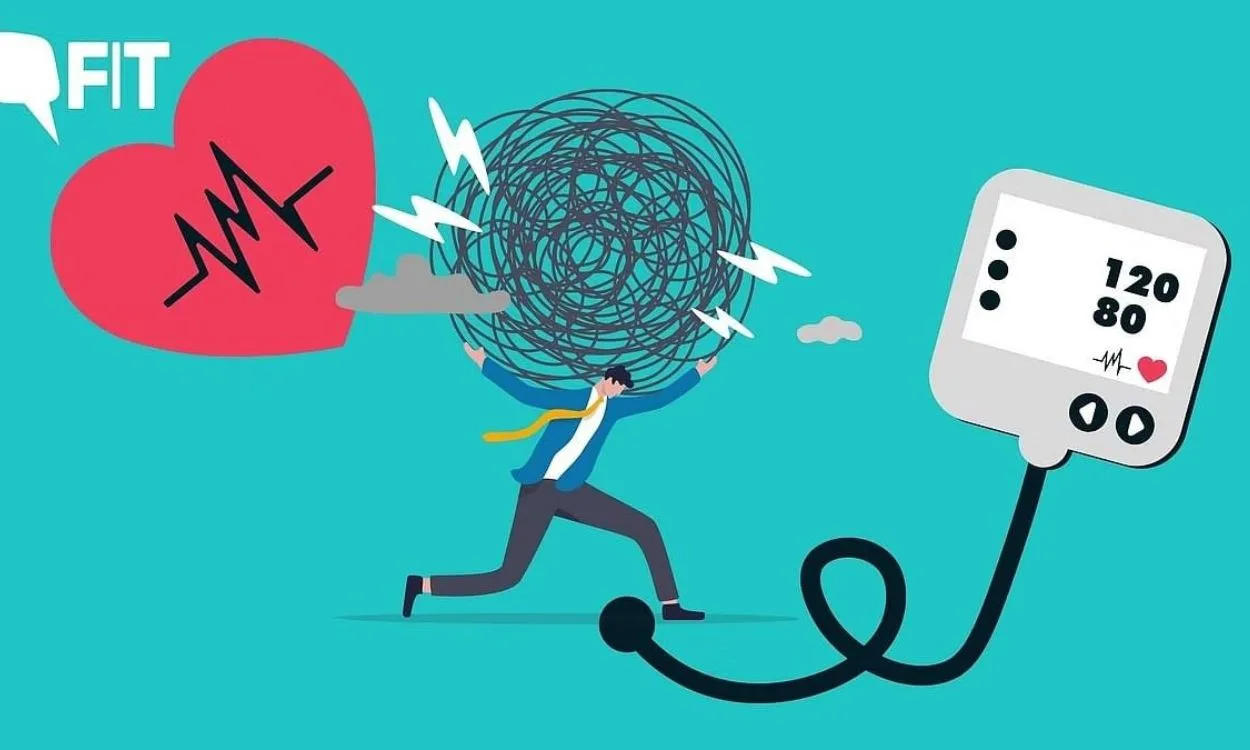What are the Effects of Chronic Stress on Heart Health?
Chronic stress is a prevalent issue in today’s fast-paced world. It is a long-term state of emotional or psychological strain that can have significant effects on our overall health. One area that is particularly vulnerable to the detrimental effects of chronic stress is our heart health. Let’s take a closer look at how chronic stress can impact the heart and what steps we can take to protect our cardiovascular health.
1. Increased Blood Pressure
One of the primary effects of chronic stress on the heart is an increase in blood pressure. When we are stressed, our body releases stress hormones like cortisol and adrenaline, which cause our blood vessels to constrict and our heart to beat faster. This response is known as the “fight-or-flight” response, and while it can be helpful in short bursts, chronic stress keeps our blood pressure elevated for extended periods. High blood pressure puts extra strain on the heart and increases the risk of heart disease and stroke.
2. Imbalanced Cholesterol Levels
Chronic stress can also lead to imbalanced cholesterol levels. Stress triggers the release of certain lipids and fats into the bloodstream, including triglycerides and LDL cholesterol, often referred to as “bad” cholesterol. These substances can build up in the arteries, leading to atherosclerosis, a condition where plaque accumulates and narrows the blood vessels. As a result, the heart has to work harder to pump blood, increasing the risk of heart attacks and other cardiovascular diseases.
3. Increased Risk of Arrhythmias
Arrhythmias are abnormal heart rhythms that can occur due to chronic stress. The release of stress hormones can disrupt the electrical signals in the heart, leading to irregular heartbeats. This can range from palpitations, where the heart feels like it’s racing or skipping beats, to more severe conditions like atrial fibrillation, where the heart beats irregularly and can increase the risk of blood clots and stroke.
4. Weakened Immune System
Chronic stress can weaken the immune system, making the body more susceptible to infections and diseases. When the immune system is compromised, it can lead to inflammation in the body, including the arteries surrounding the heart. Inflammation plays a significant role in the development of heart disease, as it can damage the arterial walls and contribute to the formation of plaque.
5. Unhealthy Coping Mechanisms
During times of stress, many individuals turn to unhealthy coping mechanisms like smoking, excessive alcohol consumption, or overeating. These behaviors can further exacerbate the negative effects of chronic stress on heart health. Smoking and alcohol abuse are both known risk factors for heart disease, while overeating and poor dietary choices can lead to weight gain and an increased risk of obesity-related heart conditions.
It’s clear that chronic stress can have a profound impact on heart health. Now, let’s explore how Fitpaa can help individuals manage their stress and improve their cardiovascular well-being.
How Fitpaa Can Help
Fitpaa is an all-in-one AI-driven Metabolism monitoring and management technology that can aid in achieving health and fitness goals. It uses the latest research in Lifestyle Medicine and Behavioral Therapy to strengthen all 11 organ systems, including the cardiovascular system. Here’s how Fitpaa can support heart health:
- Stress Management: Fitpaa incorporates cognitive-behavioral therapy techniques to help individuals manage stress effectively. By providing real-time guidance, habit-building strategies, and purpose-finding exercises, Fitpaa helps release hormones like endorphins and oxytocin, which promote a sense of well-being and reduce stress levels.
- Personalized Fitpaa Capsule: Fitpaa’s expert team of fitness coaches, nutritionists, and doctors develop a personalized Fitpaa Capsule based on an individual’s metabolism, lifestyle, and health goals. This tailored plan includes medical therapy, exercise therapy, nutrition therapy, and cognitive behavior therapy, all of which contribute to improved heart health.
- Fitness Tracking and Guidance: Fitpaa’s mobile app offers a comprehensive suite of tools to track progress, follow workout plans, and monitor dietary choices. The app provides real-time guidance and motivation to help individuals stay on track with their fitness goals, including cardiovascular exercises that can improve heart health.
- Regular Review and Course Correction: Fitpaa’s team of fitness planners, nutritionists, trainers, and doctors regularly review an individual’s progress and make necessary course corrections. This ensures that the Fitpaa Capsule is continually optimized to achieve the best results, including improvements in heart health.
By combining the benefits of technology, expert guidance, and personalized plans, Fitpaa aims to help individuals achieve their health and fitness goals, including improving heart health.
If you’re ready to take control of your heart health and embark on a transformational journey, download the Fitpaa app today and experience the joy of achieving your health and fitness goals. Remember, your well-being is Fitpaa’s mission, and with their guaranteed results, nothing is impossible!









